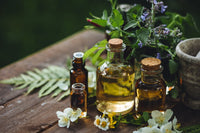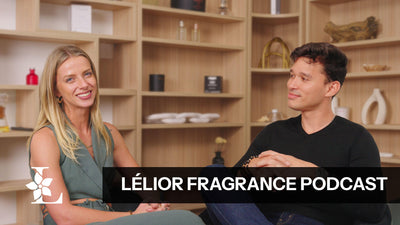Our homes are filled with pleasant aromas that create a welcoming atmosphere, but as pet owners, we need to be mindful about the scents we introduce. Many common household fragrances can pose serious risks to our furry companions. Finding safe essential oil diffusers for dogs and other pets is crucial to maintain both a fragrant home and healthy pets.
Quick List of Safe Essential Oils for Animals
When considering aromatherapy for your home, knowing which essential oils safe for cats and dogs can help protect your beloved companions. Here's a list of safe essential oils for dogs that can be used with proper precautions:
- Lavender (in very diluted amounts)
- Jasmine oil (when properly diluted)
- Vanilla extract (natural, not synthetic)
- Sandalwood (mild and generally well-tolerated)
- Chamomile (calming properties)
These scented natural oils can create a soothing environment when used responsibly. However, even essential oils that are safe to use around dogs must be highly diluted and used in well-ventilated areas.
Always consult with your veterinarian before introducing any new aromatherapy product, especially if your pet might become allergic to certain scents.
Complete List of Harmful Fragrances for Pets
Be extremely cautious about these oils, which should never be used around pets:
- Tea tree oil (extremely toxic)
- Citrus oils
- Peppermint
- Pine
- Wintergreen
- Cinnamon
- Rosemary (often not good for dogs in concentrated forms)
Toxic scents for cats can be particularly dangerous, as felines have livers that cannot process certain compounds. What's safe for humans or even dogs might still be harmful to feline friends. Always research scents safe for cats specifically before using any aromatherapy product in a home with feline companions.
In 2022, a tragic incident highlighted the potential dangers of certain aromatherapy products when a room spray containing artificial perfume ingredients was linked to multiple deaths, including two people and a pet.
Everything About Diffusers and Dogs: Finding The Balance
Dogs and aromatherapy can coexist safely when proper precautions are taken. When incorporating a home oil diffuser in a household with pets, moderation is key. Consider these guidelines:
- Always dilute oils extensively
- Use safe essential oil diffusers for dogs that disperse minimal amounts
- Provide pets with oil-free spaces to retreat to
- Monitor your pet for any adverse reactions
- Take extra care with puppies as they may be more sensitive
For senior dogs and puppies, take extra precautions as they may be more sensitive to environmental changes and more likely to become allergic to certain scents.
What scents are good for dogs? Some aromas can actually benefit our canine companions when used appropriately:
- Gentle lavender may help calm anxious dogs
- Jasmine can have mild relaxing properties
- Certain dog friendly oils like diluted chamomile may help with sleep
Pet Safe Fragrances: Alternatives for Your Home
If you're looking for alternatives to essential oils, consider these pet friendly fragrance oils and options:
- Pet-specific candles designed to eliminate odors rather than add strong scents
- Natural room sprays without synthetic perfume ingredients
- Simmer pots with mild herbs and fruits
- Fresh flowers that are non toxic to pets (research before bringing plants home)
When using any home oil diffuser or scented natural oils, always:
- Keep diffusers in areas pets cannot access
- Use minimal amounts of any scent
- Ensure proper ventilation
- Store all oils and fragrance products securely
- Discontinue use immediately if you notice any concerning symptoms
Our pets rely on us to create safe environments for them. By being mindful of the non toxic essential oils for dogs and other pets that we bring into our homes, we can enjoy pleasant aromas while keeping our beloved companions healthy and happy. Even the most pet-friendly fragrance oils should be used with caution and moderation.
Again, always consult with your veterinarian before introducing new scents into a home with pets, especially if your pet has existing respiratory issues or sensitivities.








